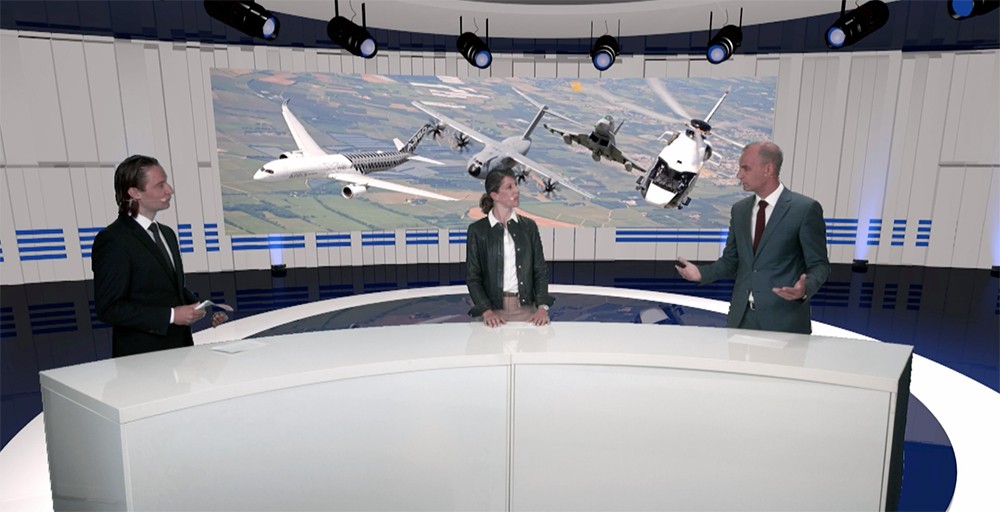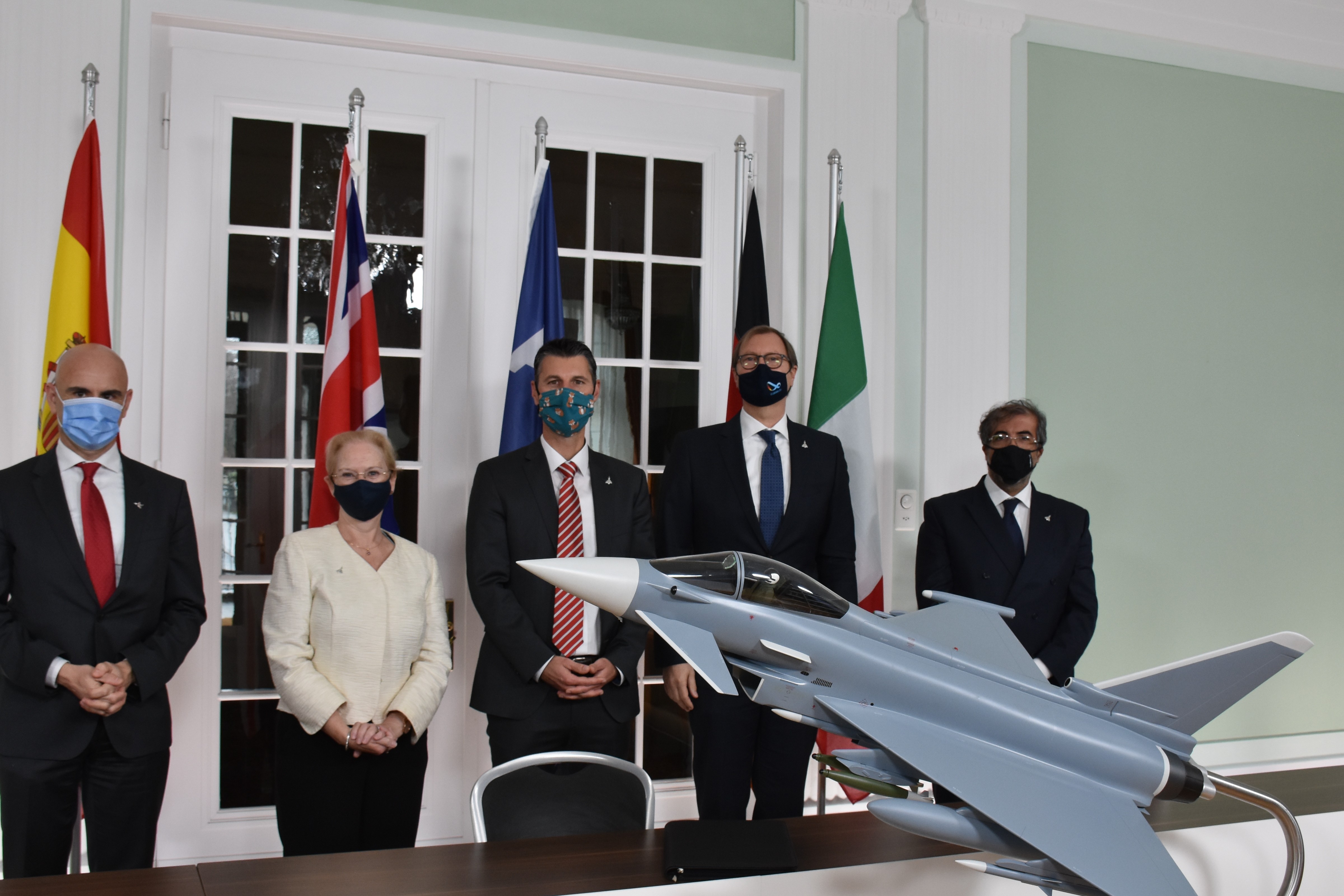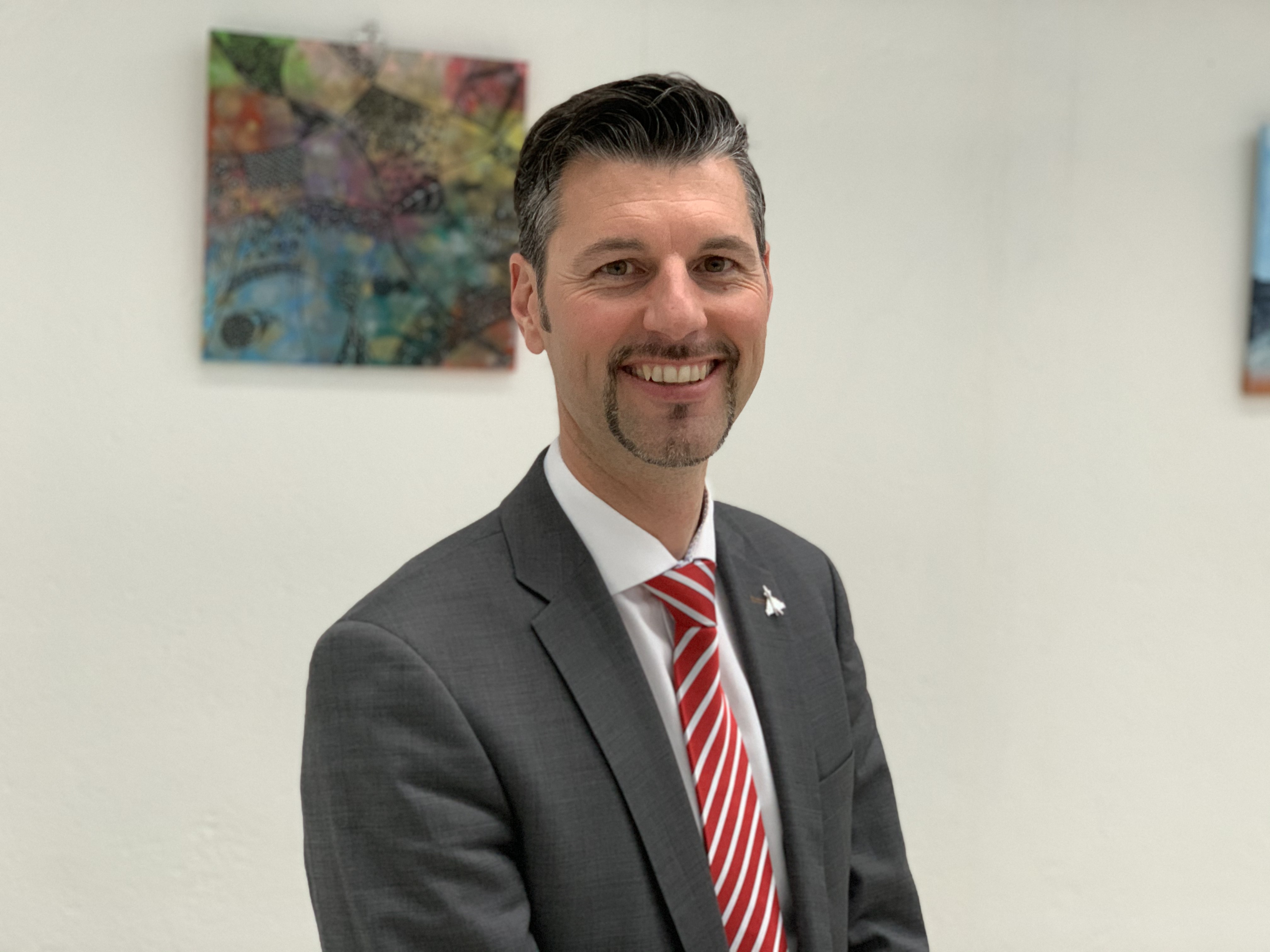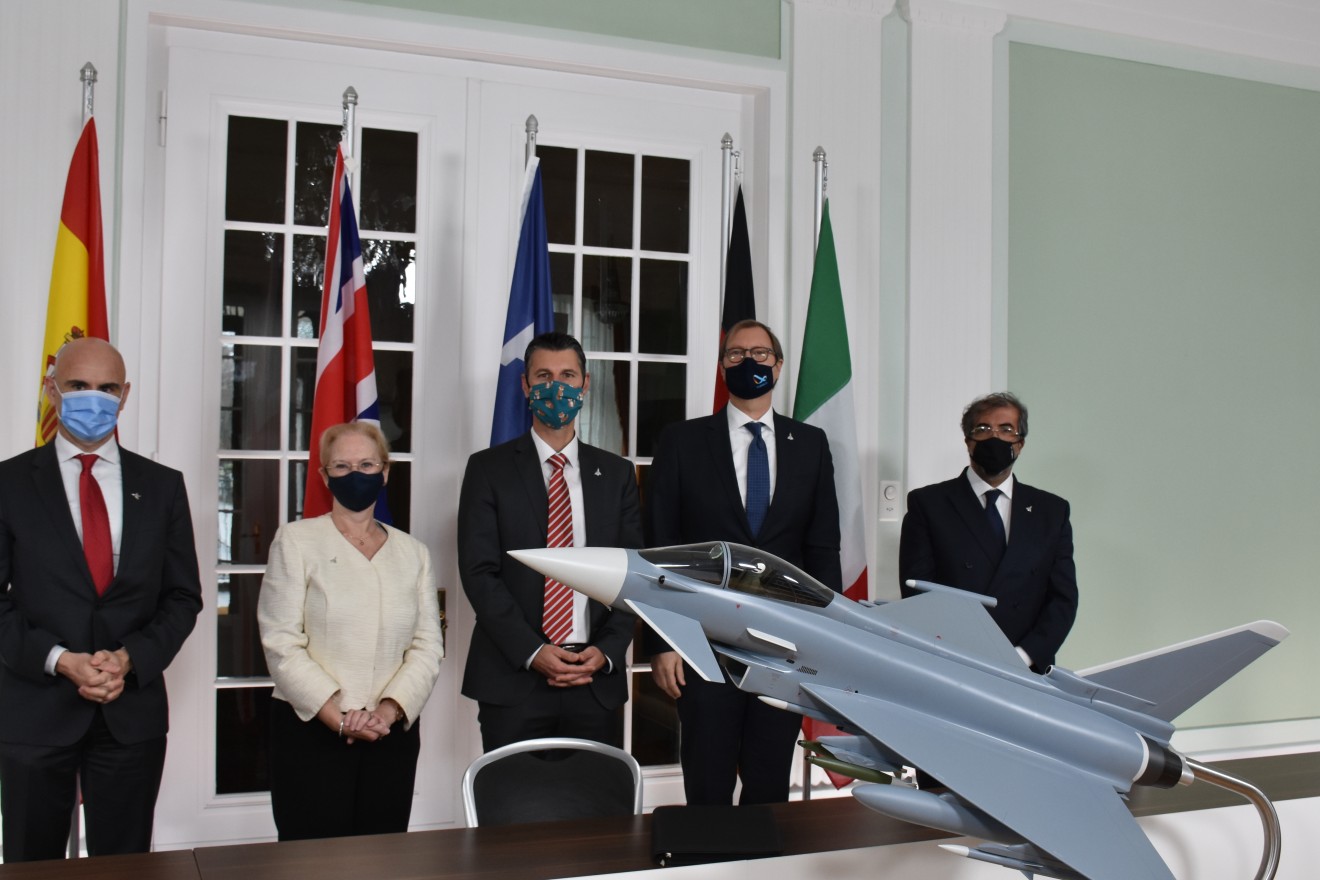We talk to Franz Posch, CEO, Airbus DS Schweiz, who is leading the campaign for Eurofighter, about meeting the challenge caused by the Covid-19 pandemic, the impact of Quadriga and what 2021 will bring.
A EURPOEAN SOLUTION
In order to be open and transparent, the Eurofighter team held the Bern press conference a day after submitting their proposal. It was hosted by the German ambassador, alongside the ambassadors from the other core Eurofighter nations, Spain, Italy and the UK.
Their message was clear — it's not only about buying a product; if Switzerland choses to do so, it can join a partnership. This is a unique Eurofighter thing. Our special partnership means whenever you need support, there are four nations who can support you in things such as training, using common airspace for training or educating pilots. This is something that can only be offered through the support of the four air forces from the core nations. They were able to show how Switzerland has the chance to share all the experience which is available from day one.

During the Q&A session, Julia Brennberger (centre) and Armin Wippich (right) were available to answer questions on offset transactions and supply chain management. Florian Taitsch (left) moderated the event.
CREATIVE RESPONSE TO COVID RESTRICTIONS
Not surprisingly, the Covid-19 pandemic had a big impact. For one thing the competition was delayed slightly. The original plan had been for offers to be submitted to the Swiss Federal Office of Armaments in August, however, that date was put back by three months to November 18th, 2020.
The campaign team had to adapt their way of working. It rapidly launched two major digital events. “In the first, we invited 200 people from industry to join live presentations from Airbus,” says Franz.
The event was critical because Switzerland wants 60 per cent of the contract value to be offset by work coming into their industry. “Normally we would have been out meeting companies face to face to develop relationships.”
We presented our offset potential for Switzerland and it was a good way for them to get to know us. We also worked with the Industrial Associations of Switzerland and Germany to bring companies together from both nations to discuss the offset possibilities.
This wasn’t the kind of run-of-the-mill webcast that we became familiar with in 2020. Instead, Franz and the team set-up a TV studio and used their production facilities to produce a live show for their guests. The format included a host and three experts to provide live answers to industry questions.
Says Franz: “We also held a real, in-person press conference in the German embassy in Bern. This time we had the four ambassadors from the Eurofighter core nations.
“With both events, we tried to come up with formats that offered something unique to the Swiss audience and both were extremely well received. I am really proud of the way the whole team responded to the challenge and the way we were able to deliver under difficult constraints.”

(from left to right) Spanish Envoy to Switzerland Javier Benosa Lalaguna, UK Ambassador to Switzerland Jane Owen, Airbus Switzerland CEO Franz Posch, German Ambassador to Switzerland Michael Flügger, Italian Ambassador to Switzerland Silvio Mignano
Franz says that the German ambassador made an interesting point at the conference. “He said that arms sales are sometimes a controversial topic in Germany, but that this was explicitly not the case for Switzerland. He said that Germany was looking for a partnership with Switzerland and the Quadriga contract shows Switzerland that Germany is committed to the exact same tranche that was being offered to the Swiss.”
The press conference also announced that Eurofighter would support a final assembly in Switzerland, passing on valuable first-hand knowledge of how the fighters are built and maintained.
“This would allow Switzerland to build up their indigenous capabilities.”
THE MESSAGE FROM QUADRIGA
The news about Quadriga from Germany broke the week before Franz and the team delivered their proposal. “It was absolutely the perfect timing. The Quadriga standard aircraft is the baseline for the proposal in Switzerland.
“Switzerland has asked all the nations competing in NKF that their solution should be in operation with their home nation. Quadriga means we can now show that Germany has decided to go for the latest generation of the Eurofighter. And this Tranche 4 Eurofighter will be able to fulfil all the requirements requested by the Swiss.
Importantly, this is a guarantee for Switzerland that there will be a lead nation flying the same configuration beyond 2060. This lifecycle question is a crucial one for Switzerland. It will be the last nation flying F-18 and as such they're having to invest heavily in order to keep the fleet operating.
Throughout the campaign, Franz and the team have been keen to stress two key messages about how their proposal is able to meet the brief for Switzerland.
“One is ‘faster, higher and more reliable’, which refers to the point that Switzerland is asking for a fighter with air superiority capability. This is something that Eurofighter was developed for and we believe it has the best technical capabilities in the international environment.”
The second message is ‘data superiority’, which is also very important for Switzerland. “What we mean is that all the data that is generated from the Swiss Eurofighter would remain in Switzerland. It could use the Eurofighter autonomously and without any restrictions. In short, data remains in Swiss hands.”
SWISS VOTERS TAKING KEEN INTEREST
Switzerland is very special because the decision always lies with its citizens. During the planning phase of the campaign, there was a public vote on the proposal from the Minister of Defence to spend six billion Swiss francs on 40 new fighters.
Franz says: “There was a very narrow majority. In fact, in the referendum 3.2 million voted and it was decided by 50.1% in favour – a difference of just around 8,500 votes. It was really close and there was intense discussion inside the country.
“It’s a very special democratic process. After the type selection, the Swiss parliament will give the final approval for the contract.”

Franz Posch, CEO, Airbus DS Schweiz
WHAT HAPPENS NOW?
We have handed in our offer, now armasuisse, the Swiss Procurement Department, takes over. It will analyse the offers and hand over their recommendations to the Minister of Defence.
The Minister will then, together with her fellow members of government, discuss the reports and they will ultimately come to an agreement and make the final decision. This is called the Type Selection and it is likely to be announced around the second quarter of 2021. After that, the detailed contract negotiations are due to start. This is prelude to final contract.
“I'm quite confident that we definitely delivered something that’s a very comprehensive and solid package with unique opportunities for Switzerland,” says Franz.
